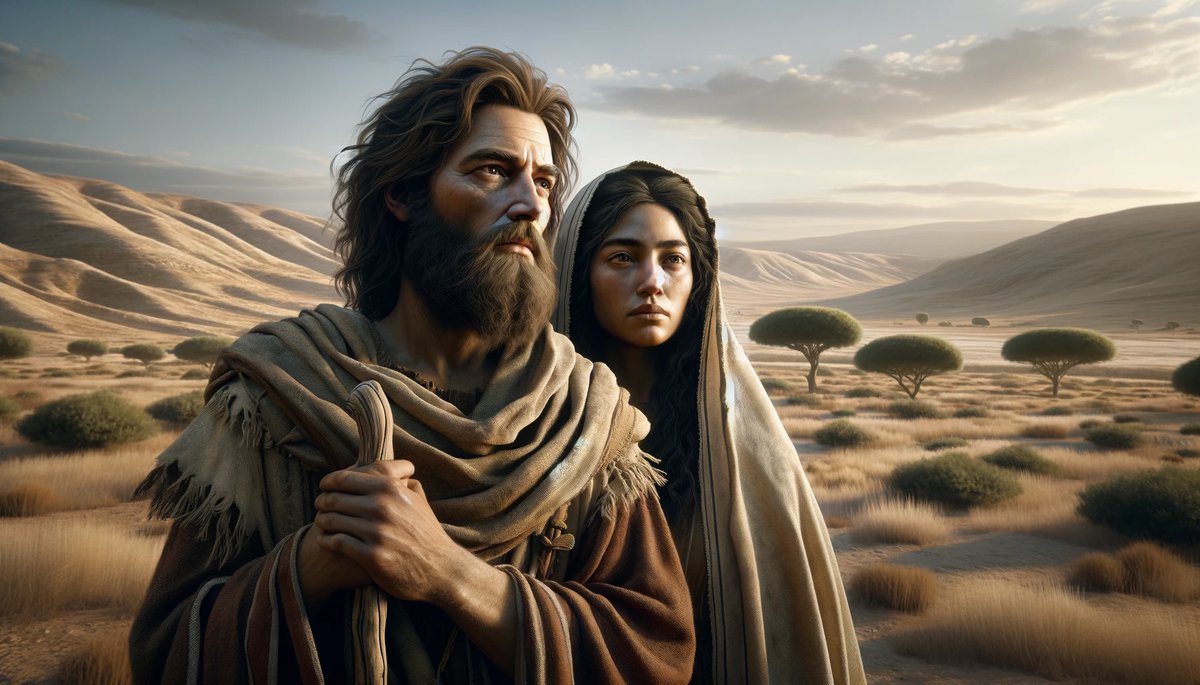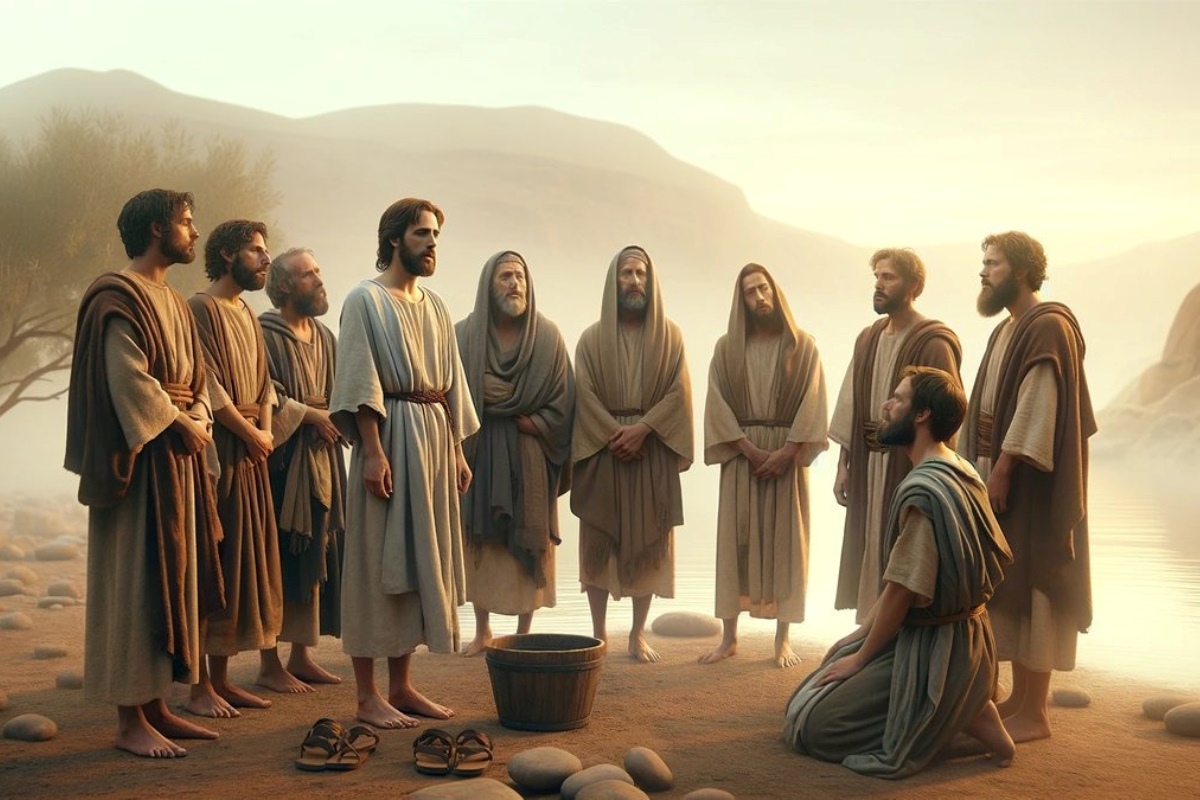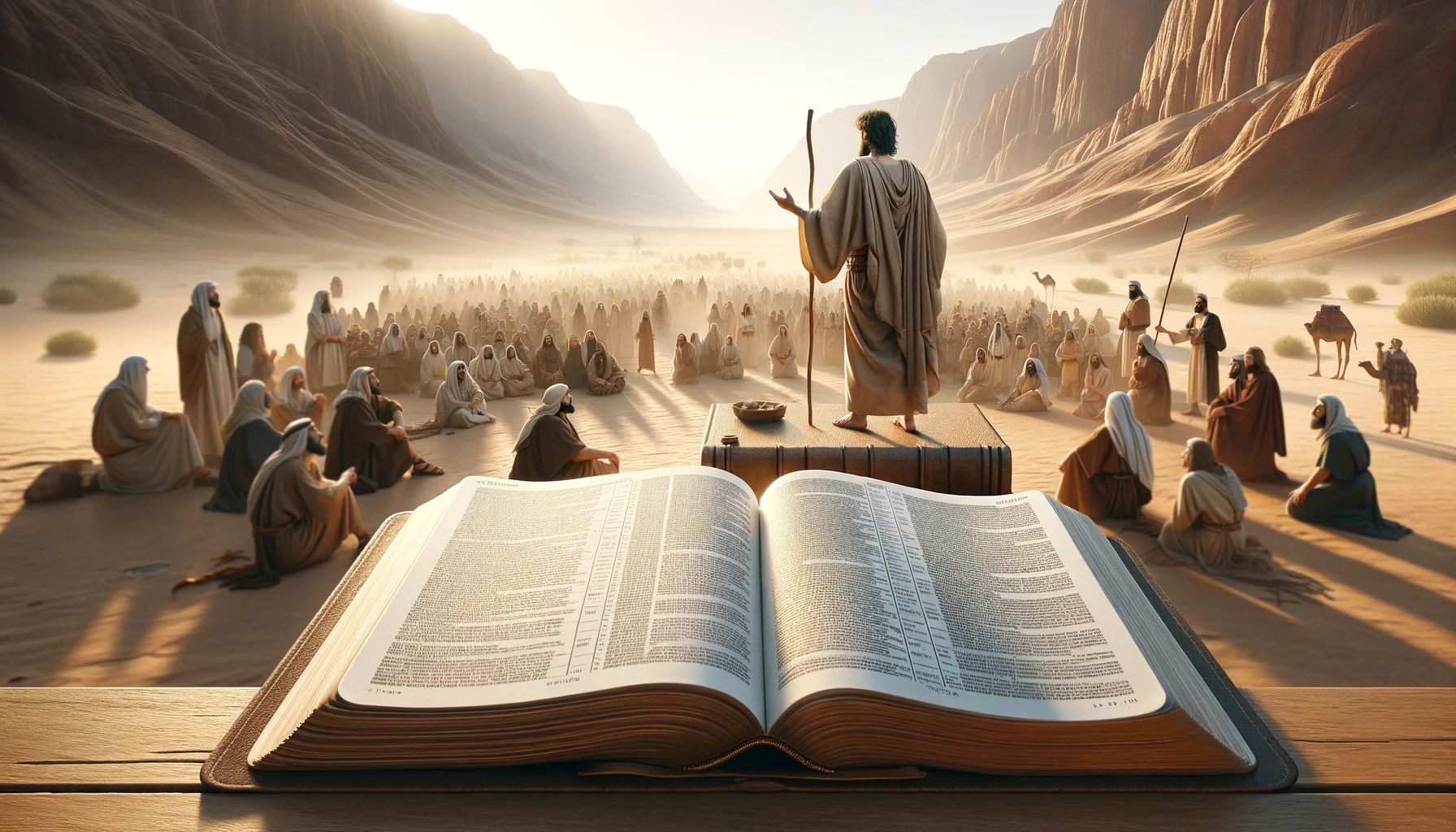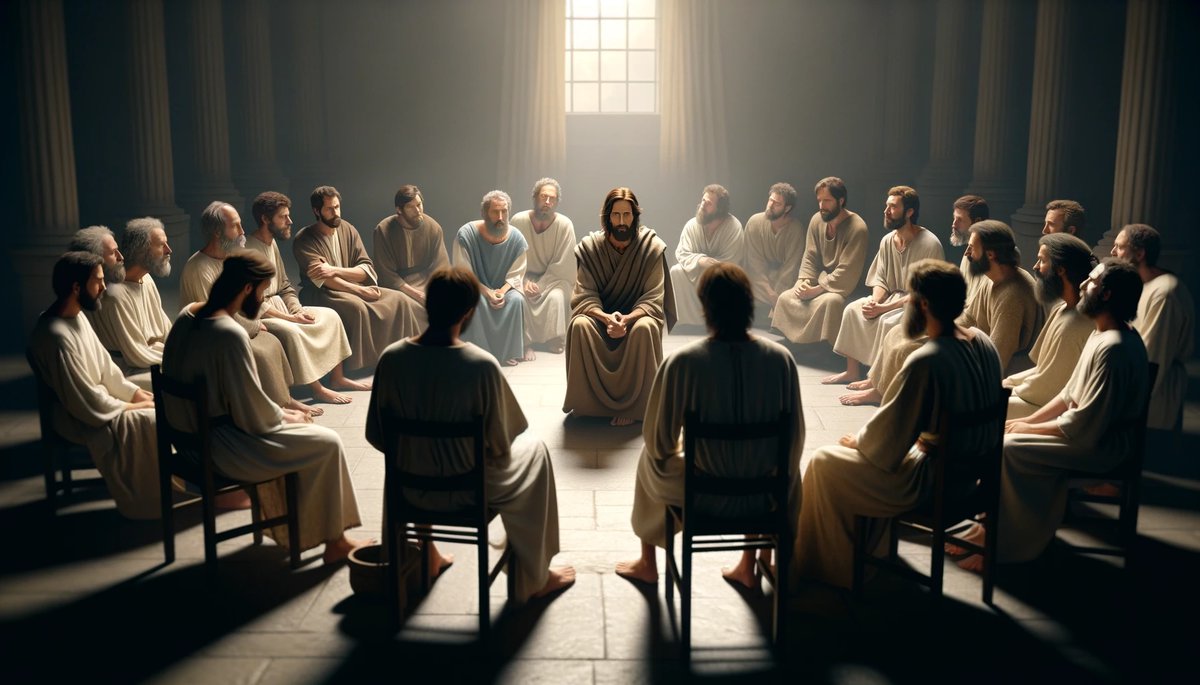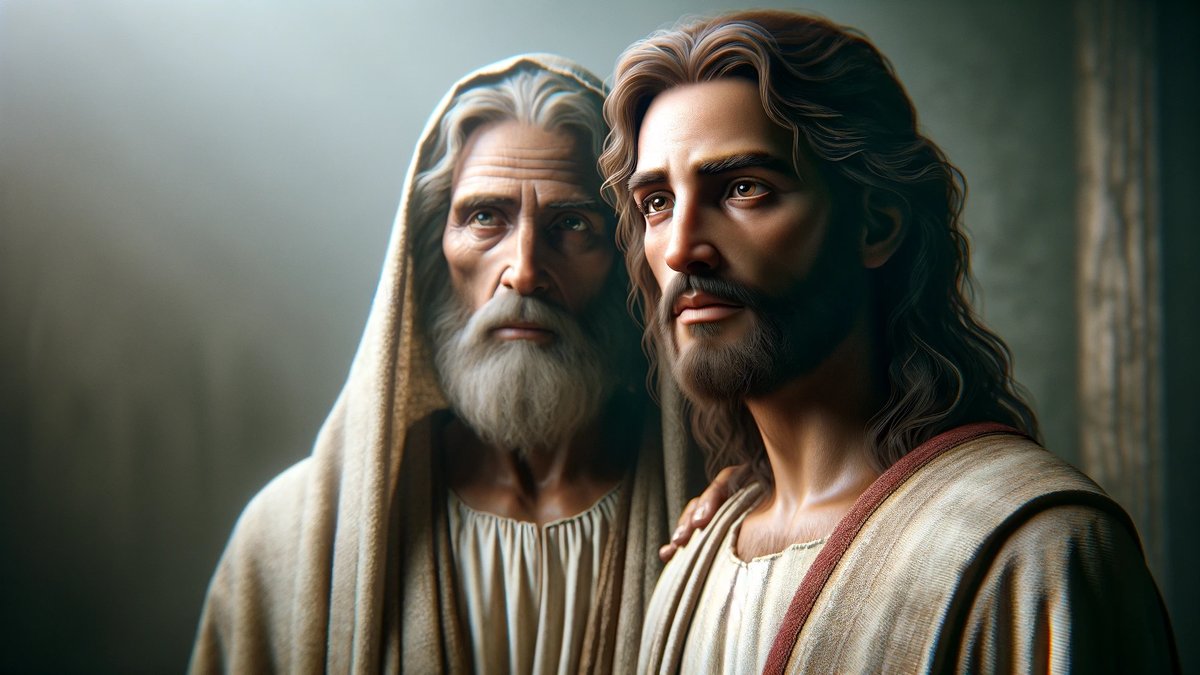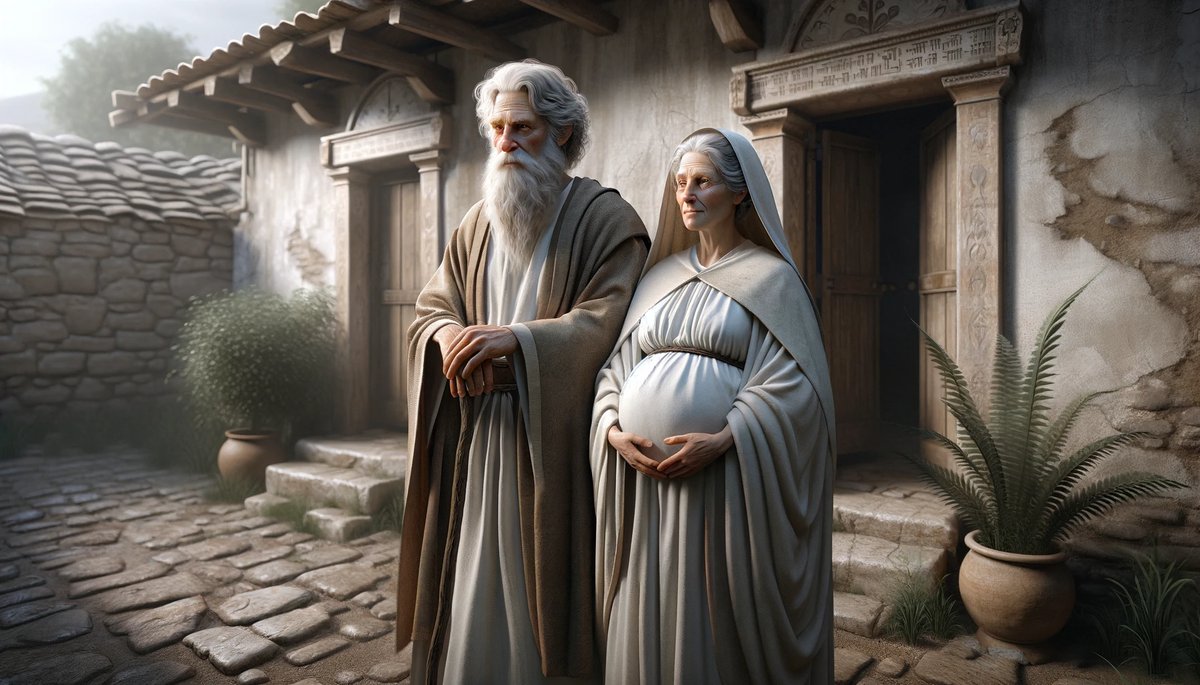Home>Theology and Spirituality>Who Prophesied John The Baptist
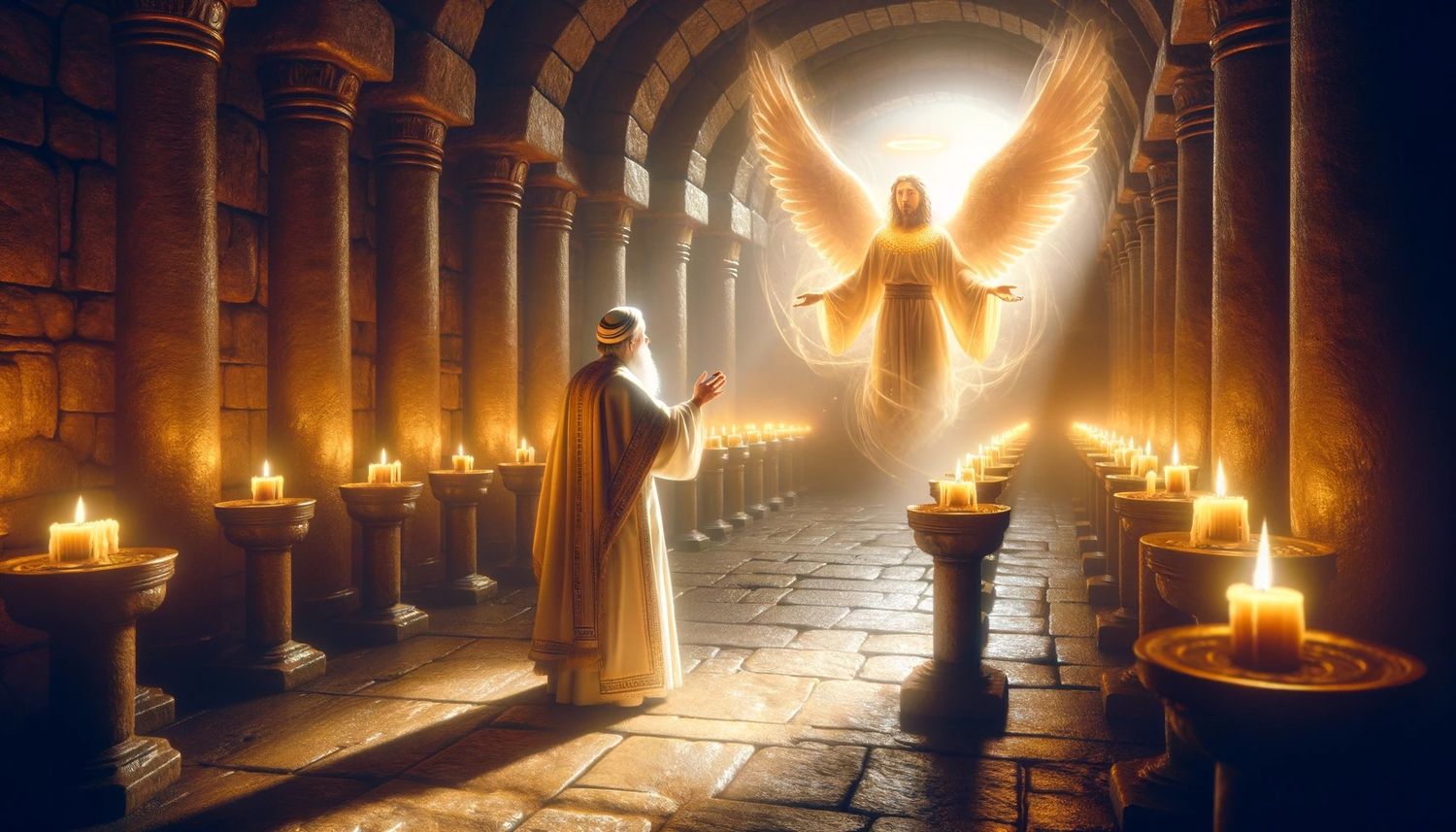

Theology and Spirituality
Who Prophesied John The Baptist
Published: February 24, 2024
Peter Smith, Editorial Director at Christian.net, combines deep insights into faith, politics, and culture to lead content creation that resonates widely. Awarded for his contributions to religious discourse, he previously headed a major organization for religious communicators, enhancing dialogue on faith's societal impacts.
Discover the prophecy of John the Baptist and its significance in theology and spirituality. Explore the historical and biblical context of this prophetic figure.
(Many of the links in this article redirect to a specific reviewed product. Your purchase of these products through affiliate links helps to generate commission for Christian.net, at no extra cost. Learn more)
Table of Contents
Introduction
The prophecy of John the Baptist is a fascinating and significant aspect of religious and spiritual teachings. It holds a profound place in the hearts and minds of believers, serving as a testament to the divine orchestration of events and the fulfillment of ancient prophecies. This prophetic narrative spans across both the Old and New Testaments, weaving a compelling tale of anticipation and fulfillment that resonates deeply with those who seek spiritual understanding.
The story of John the Baptist begins with the prophetic utterances found in the Old Testament, where the stage is set for the arrival of a herald who would prepare the way for a momentous figure. These ancient prophecies, shrouded in mystery and anticipation, lay the groundwork for the emergence of a pivotal figure who would bring forth a message of repentance and spiritual awakening.
As we delve into the New Testament, we witness the fulfillment of these ancient prophecies as they converge with the arrival of John the Baptist. The seamless continuity between the Old and New Testaments serves as a testament to the divine orchestration of events, underscoring the significance of John the Baptist in the grand tapestry of spiritual history.
Moreover, the profound impact of John the Baptist extends beyond the confines of the Bible, with references to his pivotal role found in various religious texts and traditions. These diverse sources further illuminate the universal significance of John the Baptist, transcending individual religious boundaries to underscore his enduring influence on spiritual thought and practice.
In exploring the prophecy of John the Baptist, we embark on a journey that transcends time and space, delving into the depths of ancient wisdom and divine revelation. This exploration not only sheds light on the fulfillment of prophecies but also invites us to contemplate the timeless relevance of these teachings in our modern lives. As we unravel the intricate tapestry of prophecy and fulfillment, we are beckoned to ponder the profound implications of John the Baptist's legacy and the enduring resonance of his message across the ages.
Read more: Who Prophesied About John The Baptist
The Prophecy of John the Baptist in the Old Testament
The prophecy of John the Baptist finds its roots in the Old Testament, where ancient scriptures foretold the coming of a herald who would prepare the way for a significant figure. One of the most prominent prophecies regarding John the Baptist is found in the book of Isaiah, a revered prophet whose words resonate across the centuries.
In Isaiah 40:3, it is written, "A voice of one calling: 'In the wilderness prepare the way for the Lord; make straight in the desert a highway for our God.'" This profound proclamation serves as a poignant foreshadowing of the role that John the Baptist would fulfill centuries later. The imagery of a voice crying out in the wilderness, urging the preparation of a path for the Lord, captures the essence of John the Baptist's mission and underscores the divine orchestration of events across time and space.
The prophetic anticipation of John the Baptist is further echoed in the book of Malachi, where a prophecy regarding the coming of a messenger is articulated. In Malachi 3:1, it is written, "See, I will send my messenger, who will prepare the way before me. Then suddenly the Lord you are seeking will come to his temple; the messenger of the covenant, whom you desire, will come, says the Lord Almighty." This prophetic utterance serves as a poignant precursor to the arrival of John the Baptist, whose role as a messenger preparing the way for the Lord aligns with the ancient prophecies articulated in the Old Testament.
The convergence of these prophetic utterances in the Old Testament paints a vivid picture of anticipation and divine preparation, setting the stage for the fulfillment of these ancient prophecies in the New Testament. The seamless continuity between the Old and New Testaments underscores the profound significance of John the Baptist's role in the grand narrative of spiritual history, serving as a testament to the timeless relevance of these prophecies across the ages.
As we reflect on the prophecy of John the Baptist in the Old Testament, we are invited to contemplate the enduring power of ancient wisdom and the profound implications of divine revelation. These prophecies not only foreshadow the arrival of a pivotal figure but also beckon us to ponder the universal themes of spiritual preparation and the timeless resonance of prophetic fulfillment.
The Prophecy of John the Baptist in the New Testament
The New Testament heralds the fulfillment of the ancient prophecies regarding John the Baptist with resounding clarity and significance. The prophetic anticipation articulated in the Old Testament finds its culmination in the arrival of John the Baptist, marking a pivotal moment in the grand narrative of spiritual history.
The Gospel of Matthew, in particular, illuminates the profound connection between the Old Testament prophecies and the fulfillment embodied in John the Baptist. In Matthew 3:3, a direct reference to the prophecy in Isaiah 40:3 is made, as it is written, "This is he who was spoken of through the prophet Isaiah: 'A voice of one calling in the wilderness, 'Prepare the way for the Lord, make straight paths for him.'" This explicit linkage between the prophecy of Isaiah and the arrival of John the Baptist underscores the seamless continuity between ancient foretelling and the unfolding of events in the New Testament.
Furthermore, the Gospel of Luke provides a poignant account of the fulfillment of prophecy with the birth of John the Baptist. In Luke 1:13-17, the angel Gabriel delivers a profound message to Zechariah, foretelling the birth and mission of John the Baptist. The angel declares, "And he will go on before the Lord, in the spirit and power of Elijah, to turn the hearts of the parents to their children and the disobedient to the wisdom of the righteous—to make ready a people prepared for the Lord." This divine proclamation encapsulates the essence of John the Baptist's role as the herald preparing the way for the Lord, fulfilling the ancient prophecies with unwavering precision.
The Gospel narratives not only emphasize the fulfillment of specific prophecies but also underscore the profound impact of John the Baptist's ministry. His impassioned call for repentance and spiritual awakening resonates with the timeless themes articulated in the Old Testament prophecies, serving as a living testament to the enduring relevance of divine revelation across the ages.
As we immerse ourselves in the New Testament accounts of John the Baptist, we are invited to contemplate the profound implications of prophecy and fulfillment. The convergence of ancient foretelling and the tangible realization of these prophecies in the New Testament beckons us to ponder the timeless resonance of divine revelation and the enduring significance of John the Baptist's pivotal role in the grand tapestry of spiritual history.
The fulfillment of the prophecies regarding John the Baptist in the New Testament serves as a poignant reminder of the intricate interplay between ancient wisdom and the unfolding of divine purpose, inviting us to delve deeper into the profound mysteries of spiritual prophecy and its enduring impact on human consciousness.
Other References to John the Baptist in Religious Texts
The profound influence of John the Baptist extends beyond the confines of the Bible, with references to his pivotal role found in various religious texts and traditions. These diverse sources further illuminate the universal significance of John the Baptist, transcending individual religious boundaries to underscore his enduring influence on spiritual thought and practice.
In Islamic tradition, John the Baptist, known as Yahya in Arabic, is revered as a prophet and messenger of God. His story is intricately woven into the fabric of Islamic teachings, where he is depicted as a figure of righteousness and unwavering devotion to God. The Quran, the central religious text of Islam, contains multiple references to Yahya, portraying him as a noble and virtuous figure who called upon his people to uphold justice and righteousness. The parallels between the Islamic portrayal of Yahya and the biblical narrative of John the Baptist serve as a testament to the universal reverence for this enigmatic figure across diverse religious traditions.
In the traditions of Eastern Christianity, John the Baptist holds a revered status, with his life and teachings inspiring profound spiritual devotion. The Eastern Orthodox Church, in particular, commemorates the life of John the Baptist through various liturgical celebrations and feast days, underscoring his enduring significance in the spiritual heritage of Eastern Christian traditions. The veneration of John the Baptist in Eastern Christian texts and practices reflects the universal appeal of his message and the timeless resonance of his role as the herald preparing the way for the Lord.
Moreover, the influence of John the Baptist extends into the realm of mystical and esoteric traditions, where his enigmatic persona is often intertwined with profound symbolism and allegorical interpretations. In various mystical texts and teachings, John the Baptist is depicted as a mystical archetype, embodying the transformative power of spiritual purification and inner awakening. His portrayal in these esoteric traditions serves as a testament to the enduring fascination with his enigmatic persona and the profound symbolism attributed to his life and teachings.
The diverse references to John the Baptist in religious texts and traditions underscore the universal appeal of his message and the enduring impact of his role as the herald preparing the way for the Lord. Across diverse religious boundaries, the enigmatic figure of John the Baptist continues to inspire spiritual contemplation and reverence, transcending individual beliefs to embody the timeless resonance of his profound legacy.
Conclusion
In conclusion, the prophecy of John the Baptist stands as a profound testament to the intricate interplay between ancient foretelling and the tangible fulfillment of divine purpose. From its roots in the Old Testament prophecies to its resounding fulfillment in the New Testament, the narrative of John the Baptist encapsulates the timeless themes of anticipation, preparation, and the enduring resonance of spiritual revelation.
The prophetic utterances articulated in the Old Testament, particularly in the books of Isaiah and Malachi, set the stage for the emergence of a herald who would prepare the way for the Lord. The vivid imagery of a voice crying out in the wilderness and the anticipation of a messenger resonates across the centuries, underscoring the timeless relevance of these ancient prophecies.
The New Testament accounts of the fulfillment of these prophecies in the arrival and ministry of John the Baptist serve as a poignant realization of divine orchestration. The explicit linkage between the Old Testament prophecies and the events unfolding in the New Testament illuminates the seamless continuity of ancient wisdom and the unfolding of divine purpose across time and space.
Moreover, the enduring influence of John the Baptist extends beyond the confines of the Bible, with references to his pivotal role found in various religious texts and traditions. From Islamic teachings to Eastern Christian traditions and mystical interpretations, the universal significance of John the Baptist transcends individual religious boundaries, embodying the timeless resonance of his message and mission.
As we contemplate the prophecy of John the Baptist, we are beckoned to delve into the profound mysteries of spiritual anticipation and fulfillment. The convergence of ancient prophecies and their tangible realization in the life and ministry of John the Baptist invites us to ponder the enduring impact of divine revelation on human consciousness and the universal appeal of his enigmatic persona.
In essence, the prophecy of John the Baptist serves as a timeless reminder of the intricate tapestry of divine purpose and the enduring significance of spiritual revelation. It calls upon us to embrace the profound themes of preparation, anticipation, and the unwavering fulfillment of ancient prophecies, inviting us to embark on a journey of spiritual contemplation and reverence for the enduring legacy of John the Baptist.

